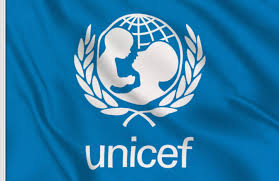The United Nations Children’s Fund (UNICEF) has raised concerns about the poor quality of education for children in the northern parts of Nigeria, in addition to the high number of Out of School Children in the region.
Rahama Rihood Mohammed Farah, Chief of UNICEF Field Office Kano, made the statement at a press conference marking this year’s International Day of Education (IDE) at Bon Hotel in Kano on Friday.
UNICEF pointed out that the northwest region has the second-highest rates of children out of school, and the situation is worsened in Kano, Jigawa, and Katsina states, where even children who are enrolled in school are facing poor learning outcomes.
Farah noted “There are currently about 10.2 million children at the primary level are out of school in Nigeria, 16 per cent of them are from Kano, Jigawa and Katsina states, according to MICS 2021.
“Close to one million children are out of school in Kano state( 989,234); a total of 337,861 out of school children are in Jigawa, while Katsina state has 536,112 out of school children,” Farah said, adding that 32% of primary school going age children were out of school in Kano state.
He said: “While the spectre of Out of School Children (OOSC) is a major concern, the challenge is that even those children who have the opportunity to be enrolled in school are not having quality education.
“Only 1 out of 4 children in Nigeria, aged 7-14 years can read and understand a simple sentence or solve basic arithmetic, according to the Multiple Indicator Cluster Survey (MICS 2021) report.
“Across Kano, Jigawa and Katsina states, this challenge is staggering: Tests conducted by the Federal Ministry of Education in 2022 found that Foundational Learning rates stand at 11 per cent or lower in the three states of Kano, Jigawa and Katsina.
“For instance, only 2% of primary school learners in Jigawa state have foundational reading skills while less than 1% have numeracy skills.
“Although Kano figures appear better at 9.6% for reading proficiency, and 11.2% for numeracy, these figures are way lower than the national averages of 26% per cent for Reading proficiency and 25% for Numeracy respectively.”
The theme for the 2025 International Day of Education was given as: “AI and Education: Preserving Human Agency in a World of Automation.”
UNICEF said the 2025 IDE conference was organised to leverage the advocacy moment of the IDE to highlight the significance of education and its role in fostering a well-informed, inclusive, and peaceful society.
Farah mentioned inadequate funding of the education sector, dissruptive impact of climate change on learning as other challenges confronting education in the country, particularly in the north.
He said UNICEF was supporting basic education in Kano, Jigawa and Katsina states through cash transfers, tree planting campaigns, enrollment drives, supply of learning materials, building of schools and improvement of teachers’ capacities among other interventions.





